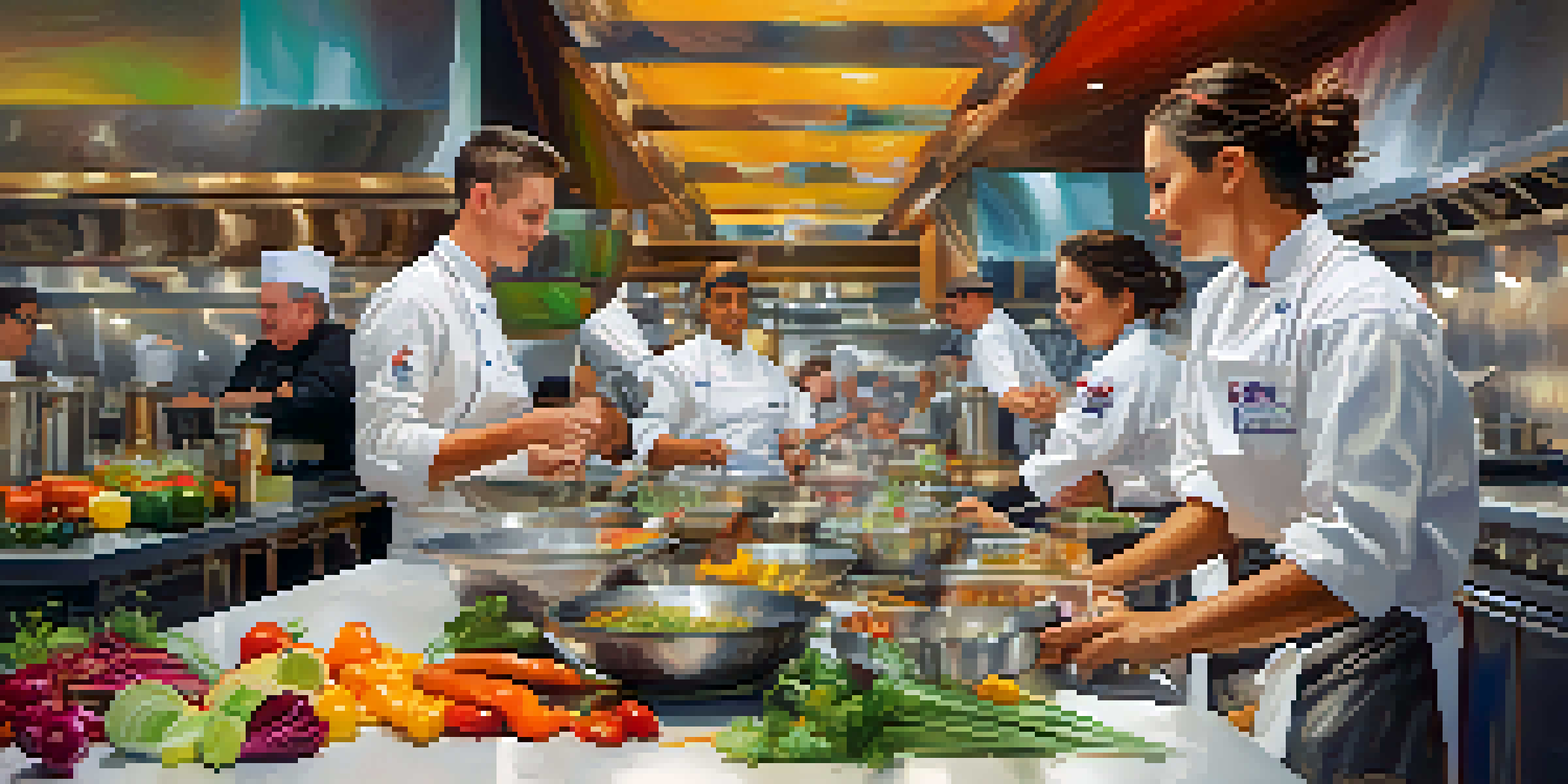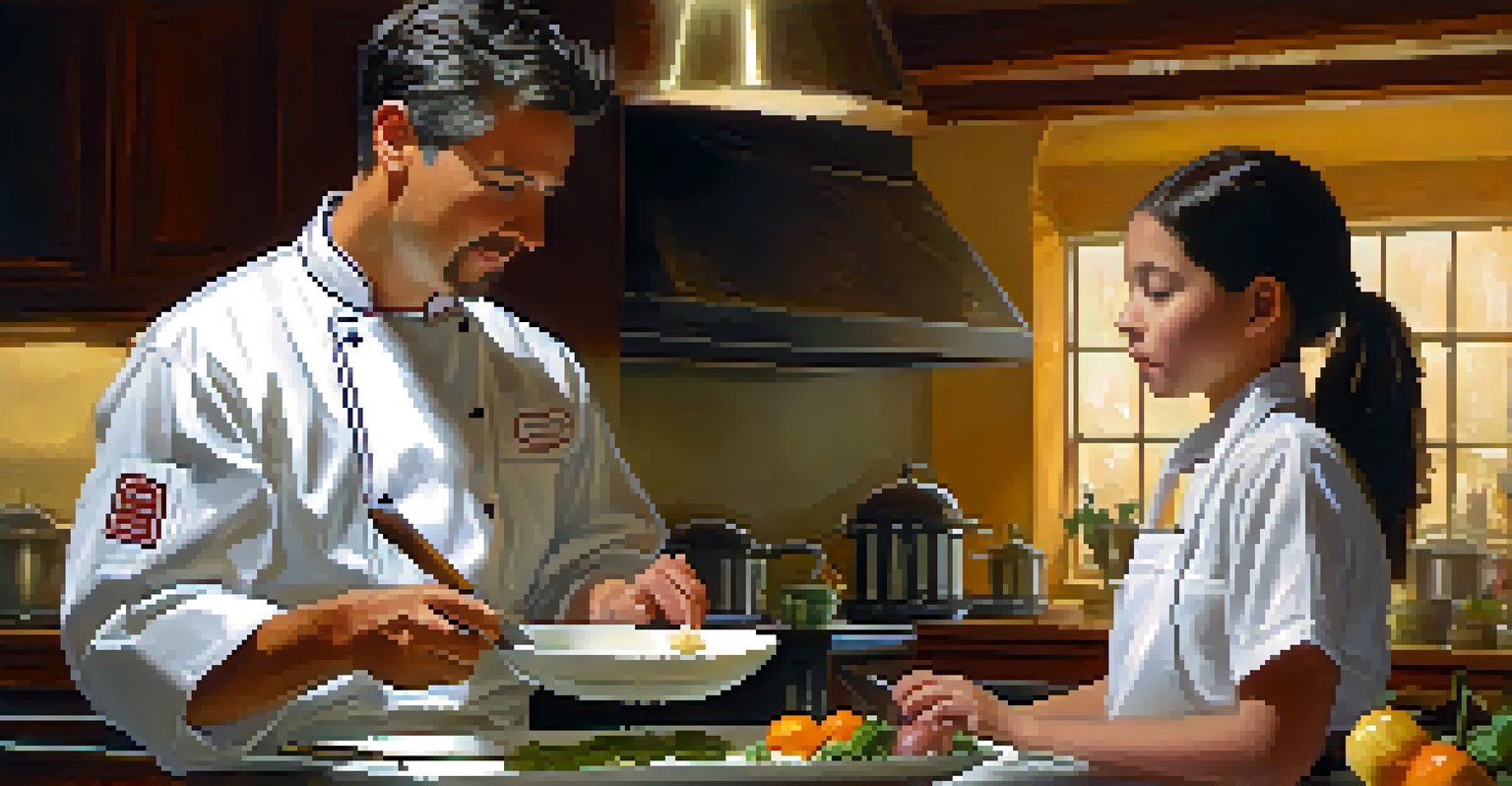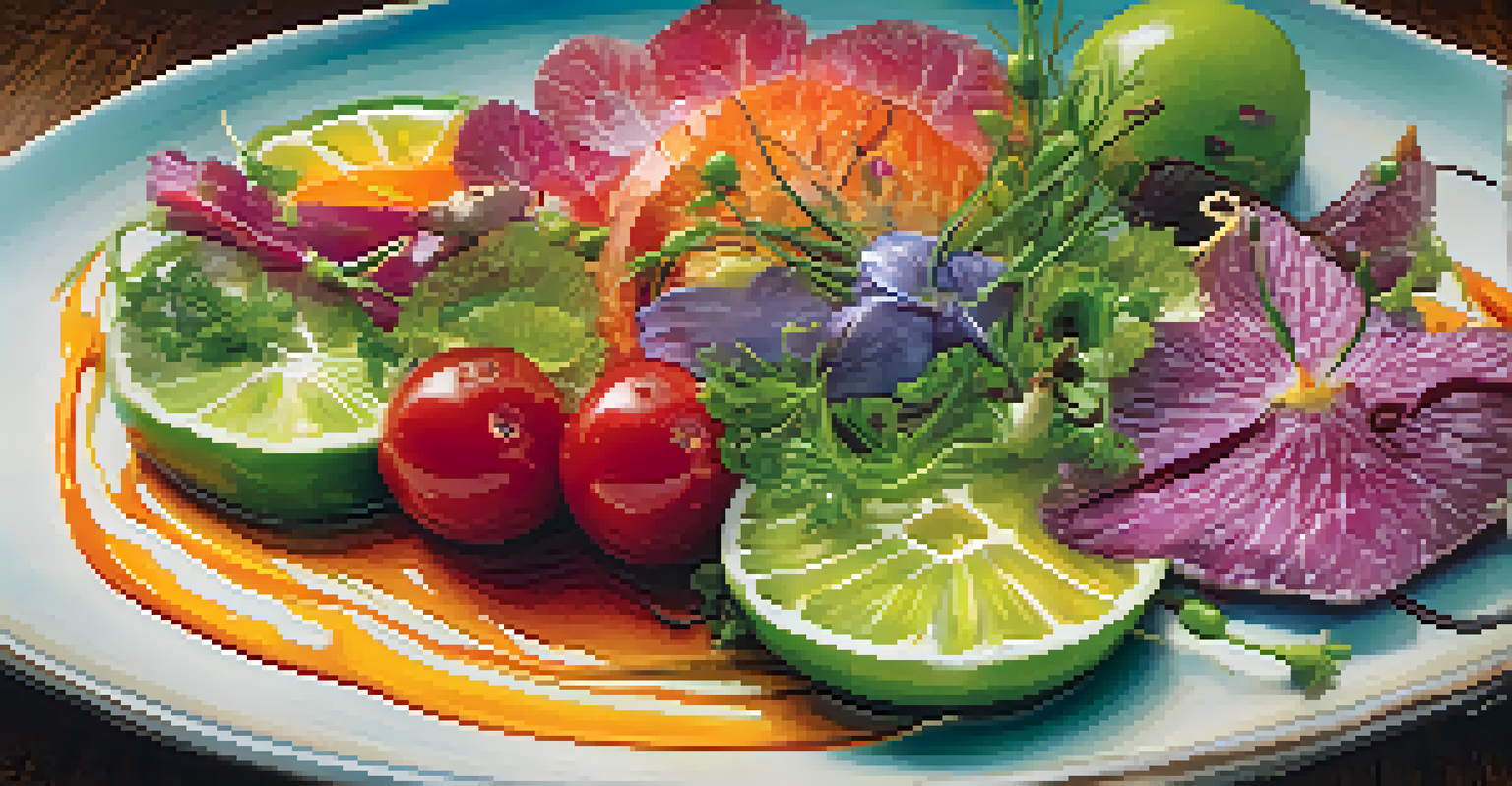Culinary Competitions: Elevating San Diego's Culinary Schools

The Rise of Culinary Competitions in San Diego
In recent years, culinary competitions have surged in popularity across San Diego. These events not only showcase the talent of aspiring chefs but also foster a sense of community among culinary schools. As these competitions gain traction, they provide students with invaluable hands-on experience that is critical in the fast-paced culinary world.
Cooking is like love. It should be entered into with abandon or not at all.
Participating in these contests allows students to push their culinary boundaries and experiment with innovative techniques. They often find themselves inspired by the creativity of their peers, which can lead to lifelong friendships and professional connections. Moreover, the competitive nature of these events fuels a passion for excellence that is essential for any culinary career.
From local food festivals to national competitions, San Diego has become a vibrant hub for culinary talent. These events highlight not only the skills of the students but also the rich culinary landscape of the city. As culinary schools continue to embrace competition, they play a pivotal role in shaping the future of the culinary arts in San Diego.
Benefits for Culinary Students Participating in Competitions
Culinary competitions offer numerous benefits to students eager to hone their skills. One significant advantage is the opportunity to learn from industry professionals who often serve as judges or mentors. This exposure can provide insights that are not typically available in a classroom setting, helping students to refine their techniques and creativity.

Additionally, students gain confidence through competition. Standing in front of a panel of judges and presenting their dishes can be daunting, yet it prepares them for the high-pressure environment of a professional kitchen. This experience is invaluable, as it teaches them how to handle criticism and adapt quickly to feedback.
Culinary Competitions Boost Skills
Participating in culinary competitions enhances students' skills, confidence, and resumes through hands-on experience and mentorship.
Lastly, participating in culinary competitions can enhance a student’s resume. Winning or even participating in reputable contests can set them apart in a competitive job market. It not only demonstrates their skills but also their commitment to the craft, making them more appealing to potential employers.
Highlighting Local Culinary Schools and Their Achievements
San Diego is home to several esteemed culinary schools that have achieved remarkable success in competitions. Institutions like the Culinary Arts Institute and Le Cordon Bleu have consistently produced talented chefs who have gone on to win prestigious awards. These schools not only focus on culinary skills but also emphasize the importance of competition in a chef's education.
The only real stumbling block is fear of failure. In cooking, you’ve got to have a what-the-hell attitude.
Many of these schools have dedicated programs to prepare students for competitions, providing workshops and mentorship from accomplished chefs. This structured approach equips students with the skills and confidence they need to excel. As a result, these institutions have earned a reputation for producing some of the finest culinary talent in the region.
Moreover, the success of San Diego's culinary schools in competitions has garnered attention from the culinary community. As alumni make their mark in restaurants and food businesses, they bring recognition to their schools. This creates a cycle of excellence, encouraging new students to pursue their culinary dreams with vigor.
The Role of Mentorship in Culinary Competitions
Mentorship plays a crucial role in the success of students participating in culinary competitions. Experienced chefs often act as mentors, guiding students through the intricacies of competition preparation. This relationship not only boosts the students' skills but also instills a sense of accountability and commitment to their craft.
A mentor’s feedback can be invaluable, helping students refine their dishes and presentation techniques. By sharing their experiences, mentors can provide insights into the judging process and help students understand what makes a dish stand out. This guidance often proves to be the difference between success and failure in high-stakes competitions.
Local Schools Foster Culinary Talent
Esteemed culinary schools in San Diego prepare students for competitions, leading to successful careers and a strong culinary community.
Furthermore, mentorship fosters a culture of support within the culinary community. Students learn the importance of collaboration and sharing knowledge, which enhances their overall culinary education. As they navigate the competitive landscape, these relationships can lead to lasting friendships and professional networks.
How Competitions Foster Innovation in Culinary Arts
Culinary competitions are a breeding ground for innovation within San Diego's culinary scene. Chefs are encouraged to think outside the box and create unique dishes that surprise and delight the judges. This emphasis on creativity often leads to the development of new culinary trends that can shape the industry.
For instance, many participants experiment with local ingredients or cultural flavors, creating fusion dishes that reflect San Diego's diverse culinary landscape. These innovations not only excite the palate but also inspire other chefs to explore new ideas. As a result, the city becomes a dynamic culinary hub where creativity thrives.
Moreover, the competitive atmosphere pushes chefs to stay updated with the latest cooking techniques and trends. This continuous learning is essential in a field that is ever-evolving, ensuring that San Diego's culinary talent remains at the forefront of the culinary arts.
Community Engagement Through Culinary Events
Culinary competitions in San Diego also serve as a platform for community engagement. These events often attract food enthusiasts, families, and local businesses, creating a vibrant atmosphere that celebrates food culture. By bringing people together, competitions foster a sense of belonging and pride within the community.
Additionally, many competitions partner with local charities, donating proceeds or food to those in need. This philanthropic aspect highlights the role of culinary arts in giving back to the community, reinforcing the idea that food can unite and uplift. Participants often find fulfillment in knowing their efforts contribute to a greater cause.
Competitions Drive Culinary Innovation
Culinary competitions in San Diego encourage chefs to innovate, explore new flavors, and keep pace with evolving industry trends.
As the community rallies around these events, students gain valuable exposure and support. The encouragement from local patrons can boost their confidence and motivate them to pursue their culinary passions further. Ultimately, these competitions not only elevate individual chefs but also strengthen the culinary community as a whole.
Future Trends in Culinary Competitions and Education
Looking ahead, culinary competitions are poised to evolve alongside the culinary education landscape in San Diego. With the rise of technology, we may see more virtual competitions that allow students from diverse backgrounds to participate. This inclusivity can broaden the talent pool and introduce fresh perspectives to the culinary world.
Moreover, as sustainability becomes increasingly important, competitions may focus more on eco-friendly practices. Students could be challenged to create dishes using sustainable ingredients or methods, highlighting the importance of environmental stewardship in culinary arts. This shift could also reflect a growing consumer demand for sustainable dining options.

Lastly, as culinary schools adapt to these trends, we can expect more collaboration between institutions and industry leaders. By working together, they can create innovative programs that prepare students for the future of culinary arts. This collaboration will not only enhance the educational experience but also ensure that San Diego remains a leader in the culinary field.